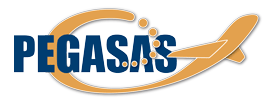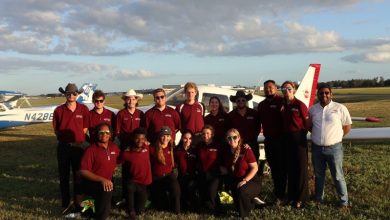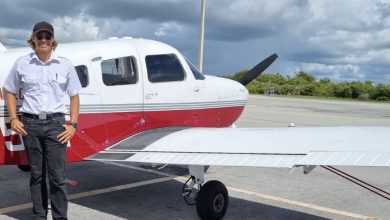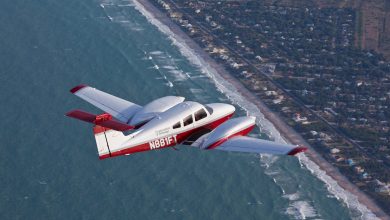PEGASUS “The Mythical Flying Horse” is alive at the Florida Tech College of Aeronautics
The Partnership to Enhance General Aviation Safety, Accessibility and Sustainability, better known as PEGASAS, is a unique research opportunity partnership with the Federal Aviation Administration (FAA) to do exactly what it stands for—enhance general aviation. Florida Tech, along with other key universities such as Ohio State University, Georgia Tech, Purdue, Texas A&M, and Iowa State have teamed up to tackle some of the toughest challenges in the aviation field. PEGASAS is a 10-year grant-funded program through the FAA.
“The mission of PEGASAS is to enhance general aviation safety, accessibility, and sustainability by partnering the FAA with a national network of world-class researchers, educators and industry leaders.”
This nationwide partnership with leading universities in aviation is an exciting opportunity to positively affect Florida Tech, as well as the general aviation community. The research conducted through PEGASAS will result in visible changes in the industry. In graduate school, research is a part of the experience, but through PEGASAS, faculty and students can see their research actually affect the area they are studying.

Left to right: Dennis Wilt, Steve Cusick and Scott Winter.
The way that PEGASAS works is through specific research projects selected by the FAA. When the needs of FAA are identified, the schools participating in PEGASAS team up and then delegate the research projects to faculty and graduate students. Schools with faculty and students that specialize in a particular aviation area are paired up with research projects that align with their specialties. Thus far, the Florida Tech College of Aeronautics has been assigned to work on two specific research topics:
- Angle of Attack Equipment for General Aviation Operations
- Rotorcraft Flight Data Monitoring
The angle of attack research looks at installing an instrument in the cockpit that will provide information to pilots about a specific aircraft’s angle of attack. It is crucial to maintain an optimal angle of attack to maintain lift for the plane. As part of the project, a Florida Tech test airplane will be retrofitted with this instrument to determine its effect. The other project deals with helicopters and the study of Flight Data Management (FDM) systems to increase safety in the rotorcraft community.
What does this mean for potential graduate students in the College of Aeronautics?
This is a 10-year partnership with the FAA. That means for the next 10 years, graduate students in the College of Aeronautics studying aviation sciences, aviation human factors and applied aviation safety can have a hands-on, grant-funded research experience. It is truly a unique opportunity!
If you have any questions on this program, shoot me a comment and I’ll get back with you.






